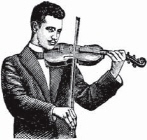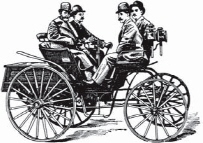Weird But True (4 page)


S
cientists working at the U.S.
Department of Energy's Brookhaven National Laboratory recently created the highest temperature ever recorded in the universe: 7.2 trillion degrees Fahrenheit. That's 250,000 times hotter than the core of the sun.
W
hen something is heated, the molecules within it move faster. When something is cooled, the molecules within it move slower. How can you make the molecules stop entirely? Bring them to absolute zero on the Kelvin temperature scale (about â459°F or â273°C). But that's easier said than done. Physicists haven't been able to create an absolute zero temperature yet (it can exist only under controlled conditions). They've missed it by about a billionth of a degree.
W
hile there is an accepted concept of absolute zero among scientists with regard to temperature, there is no universally accepted concept of absolute hotness.

O
n the Celsius or centigrade scale, 0° is the temperature at which water freezes and 100° is water's boiling point. But that's not how Anders Celsius intended it to be. When the Swedish astronomer introduced his temperature scale in 1742, he placed the boiling point at 0° and the freezing point at 100°

S
wedish botanist Carolus Linnaeus was probably the one who turned the Celsius thermometer upside down. Linnaeus is best known for devising the Latin binomial nomenclature we humans (or, as Linnaeus would say,
Homo sapiens
) still use to describe plants, animals, and minerals today.
* * *
Linnaeus unveiled his change to the Celsius thermometer in December 1745, about a year after Celsius's death.
F
rederic Tudor of Boston made his fortune by harvesting ice from the frozen ponds of Massachusetts and transporting it to places that didn't have ice of their own. His first international delivery was to the Caribbean island of Martinique in 1806. By 1833 he was shipping ice from New England to India.
* * *
The first ship delivering ice to India left Boston with 180 tons of ice and arrived with 100 tonsâthe rest had melted on the journey.
W
ater rarely freezes at precisely 0°C, and sometimes hot water will freeze faster than cold water.
* * *
Hot water freezing faster than cold water is known as the Mpemba effect. It was named for a student in Tanzania, who during the 1960s, pointed out the phenomenon to his science teacher and asked for an explanation. Physicists are still searching for one.
S
ound travels about three times faster through water than through air, and moves faster through salt water than fresh water.

K
nowing the speed at which sound travels helps scientists measure the temperature of the ocean. Because temperature affects how fast sound travels through water, by timing how long it takes a sound to travel underwater from point A to point B, it's possible to gauge the temperature of the water around it. This process is called acoustic thermometry.
I
f you happen to be scuba diving during a rainstorm (definitely
not
a good idea!), the sound of the raindrops on the ocean's surface could drive you mad. Small raindrops produce a surprisingly loud sound when they hit the surface of the waterâfirst a “plink,” followed by a sharp ping like the ringing of a high-pitched bell. Large raindrops create more of a “plunk” sound, followed by a softer ping.

P
hysicists have devised underwater recording devices that can measure the amount of rainfall over the open ocean by monitoring the sounds the rain makes when it hits the surface of the water.
F
ingernails scraping a chalkboard. Just the mention of it probably makes you cringe, but you've probably never stopped to wonder why. Now you'll know: This action produces sound frequencies similar to those of a chimpanzee's warning call. So the sense of distress we feel when the fingernails scrape could be a sign that our fundamental primate danger sensors have been triggered.

A
2009 study at the University of Wisconsin set out to determine how tamarin monkeys respond to various types of musical sounds. Classical? Jazz? Polka? Most human music left the monkeys coldâor even made them anxiousâwith one exception: They seemed to like the heavy metal sound of the band Metallica. The other tunes that turned them on were specially composed pieces that combined cello music with monkey calls.
C
himpanzees in Senegal have an unusual response to the wildfires that affect the grasslands where they live: The flames make them want to dance. Rather than running away or exhibiting other behaviors associated with fear, the chimps observe the fire, dance around it, and remain alert enough to avoid being burned when the fire spreads over the savanna.

C
himps gesture with their hands when they talk to each other, even going so far as to reach out their right hand to greet each other with what could be called a handshake.


S
amoa changed its motor vehicle laws in 2009 to mandate that cars be driven on the left side of the road instead of the right. At the time, there were fewer than twenty thousand cars registered in Samoa.
* * *
Prior to the change in Samoa, the last nation to switch driving sides was Ghana, which switched from left to right in 1974.